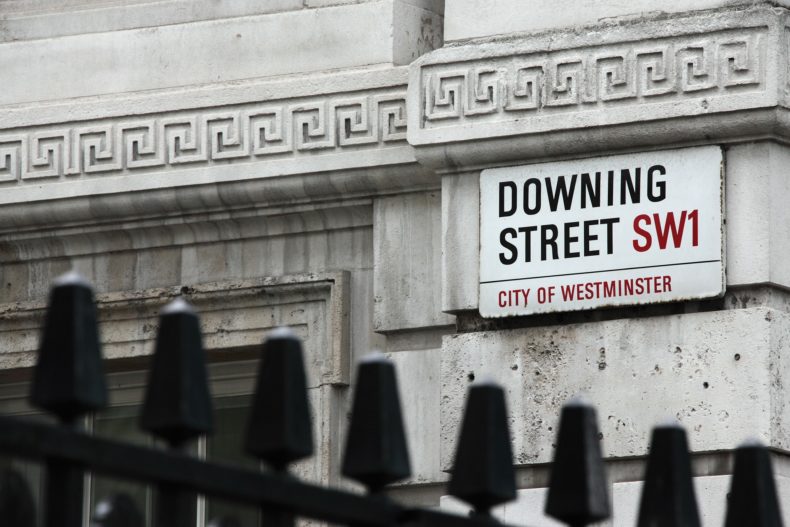The remarkable disintegration of the Conservatives

Image by PublicDomainPictures from Pixabay.
I like teasing people by asking (a) which political party has increased its share of the vote at the last five general elections in a row? and then following up with (b) why doesn’t such a long-term, sustained growth in support trigger a wave of punditry about how the country’s politics are moving in that party’s direction?
The answer to (a), remarkably, is the Conservative Party. And at least until recently, the absence of that wave of punditry in (b) has been a very odd omission. It’s rather like the long-term sustained increase in turnout in the UK, up for four general elections in a row. Both trends get discarded for, I fear, no better reason that they don’t fit with currently popular cliches and conventional thinking.
That said, the absence of such punditry is now, at least, becoming more understandable given the disintegration before our eyes of the Conservative Party:
- ConservativeHome: Three out of five Party members will vote for the Brexit Party in European elections.
- Mail on Sunday: 40% of Tory councillors back Nigel Farage’s new party
- The Independent: Grassroots Tories boycott campaign for European elections
Until now particularly under Cameron they held onto traditional voters but since referendum lost these at a trickle but gained anti EU voters from either other parties or previous non voters.
Now that crunch time is approaching they are loosing not only tradional voters but the people who climbed onto the bandwagon of hating the EU.
Times is changing in politics and the Libdems need to keep pressing, in football terms, high up the pitch as I sense a unique opportunity maybe approaching.
Owen Paterson’s agent at the last election and former Conservative leader of Shropshire Council has dropped the same bombshell in Shropshire… Wonder if Owen will follow suit.
https://www.shropshirestar.com/news/politics/2019/04/17/former-council-leaders-rocket-for-tories/
This has been a very long time coming. It could either be their complete downfall or maybe even, in the long run, the making of them as a new centre right Party without the ultra right wing faction.
Interesting and valid points, Mark. But on it becoming a Conservative Party country you have to say that in the past three elections, the best the Tories have managed is a very small parliamentary majority and that was by in large because the UKIP vote in 2015 was wasted under FPTP in actually getting MPs elected.
The historic trend is that it becomes tough for parties, both in the UK and USA, to get a third term (and I am discounting the 2017 election here so the Tories are on roughly two!). So on broad historic trends it is likely that the Tories will have had their best days electorally behind them!
Labour also managed 3 elections of increased support with only a very small drop of 2.5% in the fourth in 2001. It tends to happen when you are rebuilding in opposition from a low base That it is 4 in a row for the Tories is also slightly a factor of the coalition – with the governing parties seeing a drop in 2015 – it is just that it disproportionally affect the Lib Dems 🙁 !
There is clearly a scenario where Brexit works out for them but it seems that the split over Europe that Cameron managed both to paper over and make less relevant for voters but has plagued the Tories for 30 years will ultimately be tough for them. I think even if we Brexit, there will be a substantial “right wing” pro-business Remain vote that would have voted for them in the past and they will have lost.
But we will see – it is clearly difficult for both Labour and Tories to keep both their majority support (so far) from Remainers and Leavers respectively happy and keep enough of their minority Leave and Remain support not hacked off to get to a healthy level of support – above 35%-40%.
to quote the great man: ‘interesting times, interesting times..’
If Kier Starmer were Labour Leader and not Jeremy Corbyn the story could have been very different. Certainly 2017…. We LIBDEMS lack punch and charisma at the moment and our pro Remain credentials don’t resonate as they should…
Do we know where the Brexit Party are standing in the council elections?
Do we know who their candidates are for the European Elections?
Do we know where Farage is standing?
Agree with Tamara D. How is it, as the only national EU Remain Party our support in the polls has hovered around 10% over last 2 years. No charisma, No impact. Why are questions not being asked in HQ? Need a huge shake up.
It is easily forgotten tha the Tories increased their vote share in 2017, partly because their number of seats fell and partly because their 2017 performance was way below what was confidently predicted when the election started. 2015 was a good result for them – but before that, you have three successive painfully slow improvements from the disaster of 1997. The natural party of government has managed to achieve a majority in only one of the last seven elections.